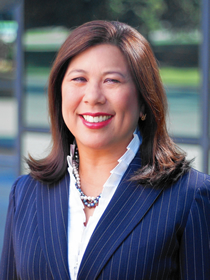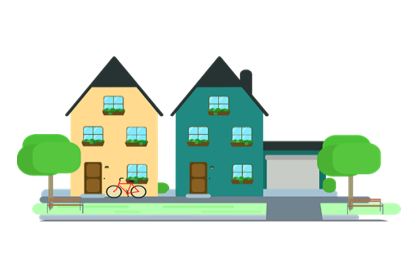You can also view this newsletter as a PDF.

Controller Highlights Key 2021 Legislation
Despite a second year of disruption to normal operations of business due to the COVID-19 pandemic, the California State Legislature was able to complete critical work, passing historic levels of investment in what Controller Yee considers high-priority issue areas. Of note, lawmakers focused on passing legislation related to pandemic relief and recovery, wildfire preparedness, racial justice, housing, and other issues, as well as a series of actions to finalize the FY 2021-22 state budget.
Climate change and wildfire response
This year, the Legislature passed – and Governor Gavin Newsom approved – an unprecedented climate package that includes over $15 billion in funding. In part, this package addresses wildfire response, forest resiliency, drought, sea-level rise, zero-emission vehicles, and short-lived climate pollutants from the waste sector. Highlights include Senate Bill (SB) 1 (Atkins), which helps coordinate funding of California’s efforts to prepare for sea-level rise; SB 47 (Limón), which increases the total amount of revenue California can collect to plug abandoned oil wells; and, Assembly Bill (AB) 525 (Chiu), which requires state agencies to create a strategic plan for offshore wind resources.
With this legislation, California takes a critical step forward in the fight against climate change. Controller Yee looks forward to the Legislature’s continued commitment to proactively addressing these issues.
Defense of racial equity and justice
The governor signed several measures intended to advance racial equity in California law enforcement. SB 2 (Bradford) provides the Commission on Peace Officer Standards and Training with a process to investigate and decertify officers who engage in serious misconduct. SB 16 (Skinner) allows public access to police records of incidents involving unreasonable or excessive force. In addition, the governor signed AB 48 (Gonzalez) to establish standards for when law enforcement may use certain weapons, such as rubber bullets and chemical agents, against protesters. Finally, AB 26 (Holden) creates guidelines to ensure officers intervene and report when another officer uses excessive force.
Controller Yee, a member of the California Victim Compensation Board (CalVCB), co-sponsored SB 299 (Leyva) to help those injured or killed by law enforcement access the same resources available to other crime victims through CalVCB. The measure did not advance this session, but it will be eligible for consideration by the State Assembly in January 2022.
 Affordable housing crisis
Affordable housing crisis
In an effort to help address California’s ongoing affordable housing crisis, lawmakers passed and the governor signed:
- SB 8 (Skinner) to extend the Housing Crisis Act of 2019 and continue certain streamlining of housing development;
- SB 9 (Atkins) ending single-family zoning in California; and
- SB 10 (Wiener) allowing local governments to more easily zone for denser housing.
While these measures will move the needle on affordable housing, Controller Yee believes improved coordination of the state’s housing finance system can accelerate housing development in California. AB 1135 (Grayson), which is pending in the Assembly Appropriations Committee, would align the allocation of housing funds under a single entity.
Digital divide
More than one in five Californians live in underserved or remote areas that are unconnected or under-connected to the internet. This means online access to education, jobs, banking, and health care is not easily accessible. This dangerous inequity has long plagued California, and the COVID-19 pandemic has only exacerbated the challenge.
In an effort to address this problem, the Legislature took action to bring broadband access to more Californians. Two bills in particular, AB 14 (Aguiar-Curry) and SB 4 (Gonzalez), work together to provide a stable funding source through the California Advanced Services Fund (CASF). Though more work remains to ensure broadband for all, these bills will allow the CASF to be used to deploy broadband services to many unserved locations.
Workforce protections
The governor also signed a number of measures designed to protect California workers. AB 701 (Gonzalez) requires warehouse employers to disclose production quotas to which workers are subject, as well as any potentially adverse action that could result from a failure to meet these quotas.
 SB 62 (Durazo) creates reforms to protect garment industry workers by ending piece-rate or by-unit compensation. This practice has been used to disguise workers' low wages. SB 639 (Durazo) will phase out sub-minimum wage compensation for workers with physical or mental disabilities.
SB 62 (Durazo) creates reforms to protect garment industry workers by ending piece-rate or by-unit compensation. This practice has been used to disguise workers' low wages. SB 639 (Durazo) will phase out sub-minimum wage compensation for workers with physical or mental disabilities.
AB 616 (Stone), which Controller Yee supported, sought to safeguard farmworkers’ right to organize by providing the flexibility to cast a secret ballot by mail when voting for or against union representation. Unfortunately, the governor vetoed this bill.
2021 Budget Act
This year, despite ongoing challenges due to the COVID-19 pandemic, California state revenues continued to outperform the forecast. Combined with federal relief funds, lawmakers were able to pass a balanced budget that included many progressive new investments. Lawmakers completed the 2021 Budget Act through a series of actions from June through September.
They initially passed AB 128 (Ting), which represented the Legislature’s budget agreement, followed by SB 129 (Skinner) that made amendments to the lawmakers’ version based on an agreement with the Administration. Additional changes to the Budget Act were made in July by AB 161 (Ting) and AB 164 (Ting), and in September by SB 170 (Skinner).
The final 2021 Budget Act makes key investments in programs that support economic recovery for families and small businesses. An early-year recovery package provided $600 to $1,200 Golden State Stimulus payments to low-income families and Golden State Grant payments of $600 to recipients of CalWorks and other assistance programs. The budget expansion provided additional Golden State Stimulus II payments of $600 to middle-income Californians with an adjusted gross income of $75,000 or less.
The budget included Proposition 98 funding of $93.7 billion for education, as well as significant investment in new childcare slots to be phased in over several years; increases in CalWORKs services; an expanded Middle Class Scholarship; a future expansion of the California Food Assistance Program regardless of immigration status; and expanded Medi-Cal coverage to undocumented adults.
In an effort to address homelessness and housing affordability, the 2021 Budget Act provides $12 billion over two years to support Project Roomkey, Project Homekey, accessory dwelling unit financing, regional planning grants, and funds to preserve affordable units and promote homeownership, as well as support for families struggling to pay unpaid utility bills.
In addition, the budget makes major investments in wildfire prevention, emergency response and preparedness, water resilience and drought, infrastructure, the environment, and expanded broadband access. While recovery from the COVID-19 pandemic continues to present uncertainty, the 2021 Budget Act pays down debt and builds total reserves to $25.2 billion.
Controller's Sponsored Bills up for Consideration in 2022
In 2021, Controller Yee sponsored a number of priority bills in the California Legislature that continue to work their way through the legislative process. These two-year bills will be considered by lawmakers in 2022.
SB 299—CalVCB, of which Controller Yee is a member, administers the state’s Victim Compensation Program – an important pathway for survivors to access support, providing reimbursement for costs such as physical and mental health care, funeral expenses, relocation, and home and vehicle disability modifications when a survivor has no other means to cover these costs. There are limits on how much can be paid out, and expenses must result directly from the crime. SB 299 (Leyva) corrects current eligibility restrictions that lock out survivors of police violence and prevent them from accessing victim’s compensation.
Currently, CalVCB cannot approve an application for assistance without a police report, which often is not available in cases where the police caused an injury or death. SB 299 recognizes people who are seriously injured or killed by police as crime victims eligible for compensation. The bill would allow survivors of police use of force to submit documentation other than a police report to verify eligibility and would bar denial based solely on the contents of a police report in cases alleging police violence. Applicants would be denied compensation if the person injured by law enforcement is convicted of committing a violent felony; and no victim is eligible to receive compensation while in jail or prison, or while on probation or parole for a violent offense.
AB 1192—As a former member of the California Future of Work Commission, Controller Yee recognizes the importance of job quality and addressing the challenges facing California workers. AB 1192 (Kalra) would establish a data-driven program to incentivize exemplary employment practices by businesses.
AB 1192 would enact the Uplifting Employers That Advance Job Quality Act, requiring companies with more than 1,000 employees to disclose human capital metrics annually to the Labor and Workforce Development Agency (LWDA). These metrics – including data related to job quality, pay, advancement, benefits, and equity -- would be made public on the LWDA’s website.
AB 1099—Long-standing neglect of disproportionately affected communities and populations (DACPs) persists for low-income communities, communities of color, indigenous peoples, immigrants, the unhoused, and others who bear the cumulative brunt of climate change, pollution, and poverty. AB 1099 (R. Rivas) would enact the Environmental Equity Principles Funding Framework Act to provide more equitable climate investments by requiring equity principles be incorporated into future new bonds adopted by the legislature and approved by voters, as well as special funds created under the Public Resource Code and Water Code. AB 1099 would allocate a minimum of 40 percent of environmental and bond funding to DACPs and would require administering state agencies to incorporate equity principles into regulations or guidelines.
AB 1135—As California’s chief fiscal officer, and a board member of the Tax Credit Allocation Committee and the California Debt Limit Allocation Committee, Controller Yee understands structural change and improved coordination of state programs are needed to ensure the effective use of public housing resources and address the state’s growing shortfall of affordable housing units. Currently, there are four state departments and committees that allocate most affordable housing funds. AB 1135 (Grayson) would enact the State of California Housing Allocation Act to centralize affordable housing fund allocations. AB 1135 would create a one-stop shop for affordable multi-family housing developers to obtain tax-exempt bonds, state and federal tax credits, and state subsidy loans. The bill would reduce the time and cost to stakeholders applying for affordable housing funding from the state; reduce duplicative work currently being done by multiple state departments; and allow more efficient and timely distribution of state-controlled affordable housing funds.